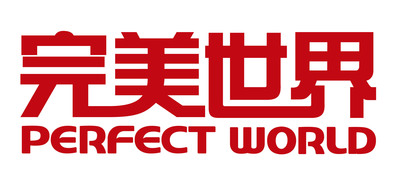BUYOUTS: Perfect World Wraps, Investors Wary on Others
Bottom line: Investors are regaining confidence that some of the bigger, recently announced buyouts for US-listed China companies could be completed, but believe many smaller deals will ultimately collapse.

Online game operator Perfect World (Nasdaq: PWRD) has formally completed its management-led buyout, offering us a good opportunity to check the status of dozens of other pending offers that look shaky due to recent turbulence in China’s stock markets. Perfect World was one of a handful of companies that launched their privatization drives before May, when a wave of new bids fueled by speculative money from China’s frothy stock markets suddenly began.
I’ve previously said that many of the earlier bids like Perfect World’s are likely to succeed, as their funding sources seemed more solid. But some of the other bids may run into trouble due shaky money sources that may rapidly disappear as China’s stock markets show signs of heading into another tailspin.
Surprisingly, many US-listed Chinese stocks didn’t seem to suffer too much in the latest trading session, even as China’s 2 main domestic stock markets continued a free-fall that has seen them lose about 10 percent of their value in the first 2 days of this week. One stock that did do poorly was online search leader Baidu (Nasdaq: BIDU), which tumbled 15 percent to a 1-year low on a weak earnings report. (previous post) But that seems like a company-specific issue, and many companies to recently announce privatization plans actually rose modestly in the latest session in New York.
Perfect World announced its management led buy-out back in January (previous post), and its completion of the plan this week reflects the very real fact that such deals are quite complex and usually require at least 4-6 months to execute. Perfect World originally said the buyout group would pay $20 for each of its American Depositary Shares (ADSs), and it actually raised that price slightly to $20.20 in the final offer. (company announcement) It said its shares stopped trading after Tuesday, and will now de-list in the next 90 days.
Perfect World is one of many online game companies that have de-listed due to slow growth that led investors to ignore the stock. Others to announce similar de-listing plans early this year include education services provider Xueda (NYSE: XUE), and online dating site Jiayuan (Nasdaq: DATE). Xueda has just announced the signing of a final deal for its buyout (company announcement), and Jiayuan has also indicated several times since the stock market turbulence that its deal is still moving ahead. (previous post)
Standing on Shaky Ground
But many of the companies that announced their privatizations during a flood of offers in May and June now look somewhat shaky, since their funding may have been linked to China’s stock markets that were rallying sharply at that time. A look at some of the companies that received such offers reveals 2 major groups: one comprising larger, better known companies and the other comprising lesser-known names.
Within those groups, the larger companies seem to be faring better right now in terms of investor confidence about ability to complete their buyouts. Most of their stocks are currently trading 10-20 percent below their buyout prices, which is a bit of a discount but seems to reflect guarded optimism that these deals could still close. Typical of the group is security software specialist Qihoo (NYSE: QIHU), which is the biggest company to launch a privatization bid and whose shares are now 18 percent below their buyout price.
Lesser-known companies aren’t faring as well, probably because their funding sources are the shakiest among the group. Many of these firms are now trading at discounts of 20 percent or more to their buyout prices, led by China Information Technology (Nasdaq: CNIT) which is off by nearly half. I expect we could see formal announcements soon that some of these bids are being scrapped, and even the bigger names like Qihoo could still face headwinds if China’s latest stock market downturn continues.
Related posts:
